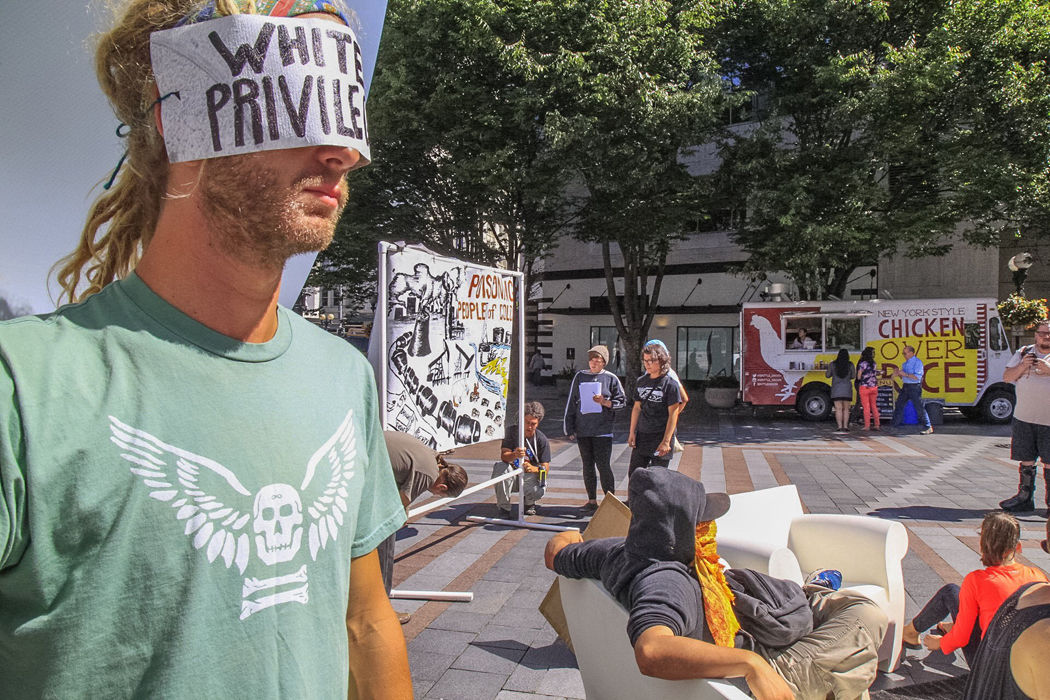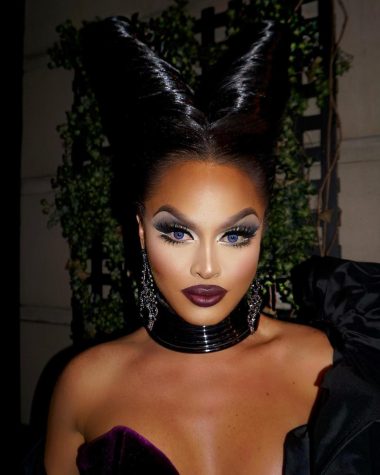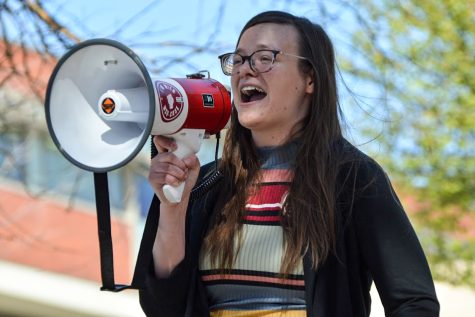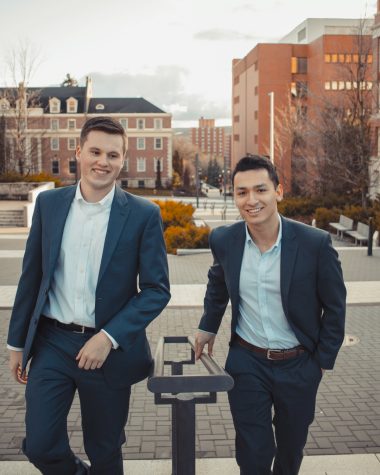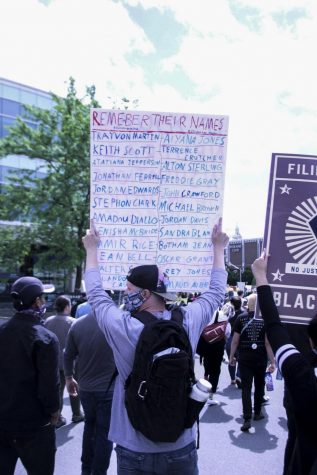Exploring racial privilege
A protester participates in an interactive demonstration against racism in Westlake Park in Seattle on August 17.
April 5, 2016
Earlier this week, while browsing my somewhat uneventful news ‘highlight’ reels on various social media websites, a headline punched the air right out of my lungs — an article on CNN’s website titled, “It’s time to talk about ‘black privilege.’”
The first time I read the title, I thought I was hallucinating, but there it was staring me in the face like someone who hated my guts. Personally, I don’t feel that ‘black privilege’ exists — I don’t call 500 years of oppression through slavery and racial discrimination a privilege.
For this column, I had to put my own opinions aside and really try to deconstruct what was happening here. So, before we go any further, we should discuss what privilege is.
Richard King, a professor in the Department of Critical Culture, Gender, and Race Studies (CCGRS) at WSU, said that “Privilege is a concept to describe power relations. It adds another dimension to existing ideas like oppression and marginalization. Privilege describes the unearned advantage of holding a particular position in a society structured along the lines of race, gender, sexuality, class, age and so forth. Marginalized and oppressed groups do not have privilege in this sense.”
King went on to say “My sense from a quick scan of the Internet is that black privilege seeks at once to appropriate and undermine ideas that call out existing power relations.”
Marian Sciachitano, a clinical associate professor in the CCGRS department, said “In this post-Civil Rights era in the U.S., it comes as no surprise that there is right-wing backlash against any recognition of white privilege. Instead, the shift from discussing white privilege to black privilege is in many ways reminiscent of the anti-affirmative action rhetoric around special rights from the early 2000s which contributed to major rollbacks in affirmative action in employment and education that were hallmarks of the Civil Rights Act of 1965.”
If we look at the actual effects of affirmative action, it in no way rolled out the red carpet, Champagne and jobs for all people of color; it merely gave them equal footing, saying companies should consider well-qualified candidates regardless of race.
Several recent studies have included resume analyses, most notably one by the National Bureau of Economic Research, which found that job applicants with white-sounding names only have to send around 10 resumes to get a call back while African-American-sounding names had to send out 15. This doesn’t seem like much until you factor in sending 100 resumes — for white-sounding names that is just 100 pieces of paper but for African-American-sounding names that number becomes 150.
Are Black citizens really as privileged as some conservative rhetoric might have us think? From what I can gather from opinions far more authoritative than mine, the answer is a resounding no. Privilege in essence is defined as something you don’t have to think about. These things are just a given; there is no need to question them.
Take, for example, the fact I look white. I have never really experienced race in the same way as my family or even some of my friends because my race is hidden. I am whiter than the mayo on a turkey sandwich, and I have experienced plenty of privilege because of it.
I can walk into a store without fear of the shopkeepers staring me down. I can get a job or rent an apartment with few questions asked. I can get pulled over by the cops and get off with a warning or a minimal fine without fearing for my life. Fear of being beaten up because of the color of my skin never crosses my mind. Being taunted or heckled for the color of my skin never happens. Privilege means not thinking about being stereotyped day in and day out — it means you get to exist in the freest form possible. When you embody the societal standard of what it means to be normal — that is privilege.


